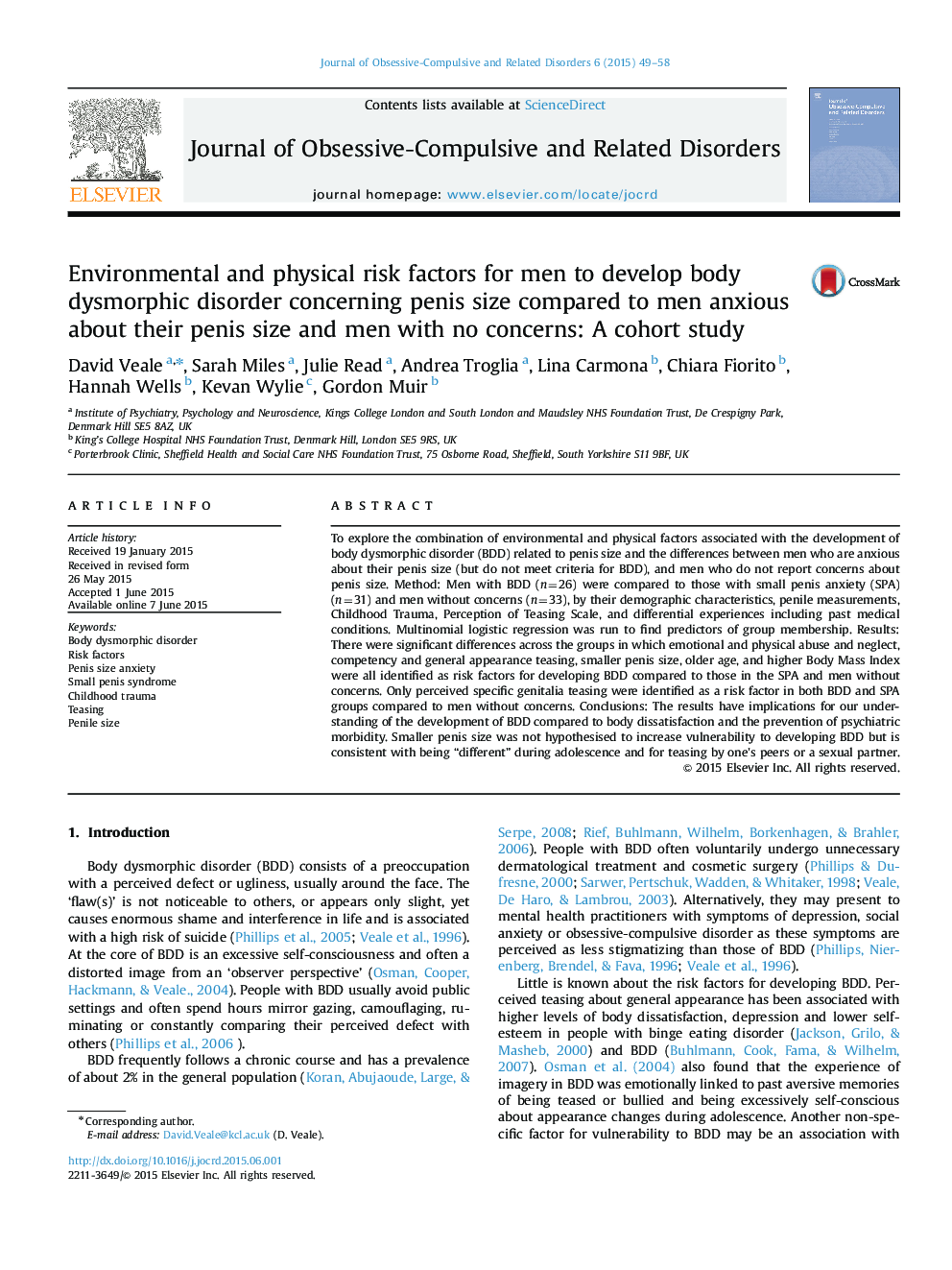| Article ID | Journal | Published Year | Pages | File Type |
|---|---|---|---|---|
| 912225 | Journal of Obsessive-Compulsive and Related Disorders | 2015 | 10 Pages |
•Emotional and physical abuse and neglect, general teasing are risk factors for BDD.•Specific genitalia teasing is a risk factor in both BDD and Small Penis Anxiety.•A smaller penis size may be a risk factor for men with BDD concerned about penis size.•A smaller penis size is consistent with being in the normal range but “different”.
To explore the combination of environmental and physical factors associated with the development of body dysmorphic disorder (BDD) related to penis size and the differences between men who are anxious about their penis size (but do not meet criteria for BDD), and men who do not report concerns about penis size. Method: Men with BDD (n=26) were compared to those with small penis anxiety (SPA) (n=31) and men without concerns (n=33), by their demographic characteristics, penile measurements, Childhood Trauma, Perception of Teasing Scale, and differential experiences including past medical conditions. Multinomial logistic regression was run to find predictors of group membership. Results: There were significant differences across the groups in which emotional and physical abuse and neglect, competency and general appearance teasing, smaller penis size, older age, and higher Body Mass Index were all identified as risk factors for developing BDD compared to those in the SPA and men without concerns. Only perceived specific genitalia teasing were identified as a risk factor in both BDD and SPA groups compared to men without concerns. Conclusions: The results have implications for our understanding of the development of BDD compared to body dissatisfaction and the prevention of psychiatric morbidity. Smaller penis size was not hypothesised to increase vulnerability to developing BDD but is consistent with being “different” during adolescence and for teasing by one's peers or a sexual partner.
